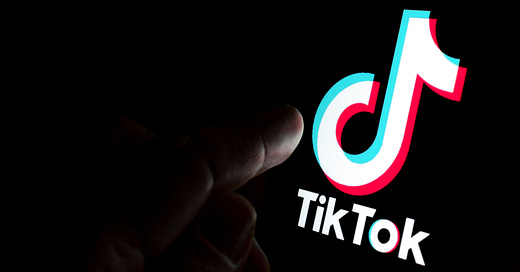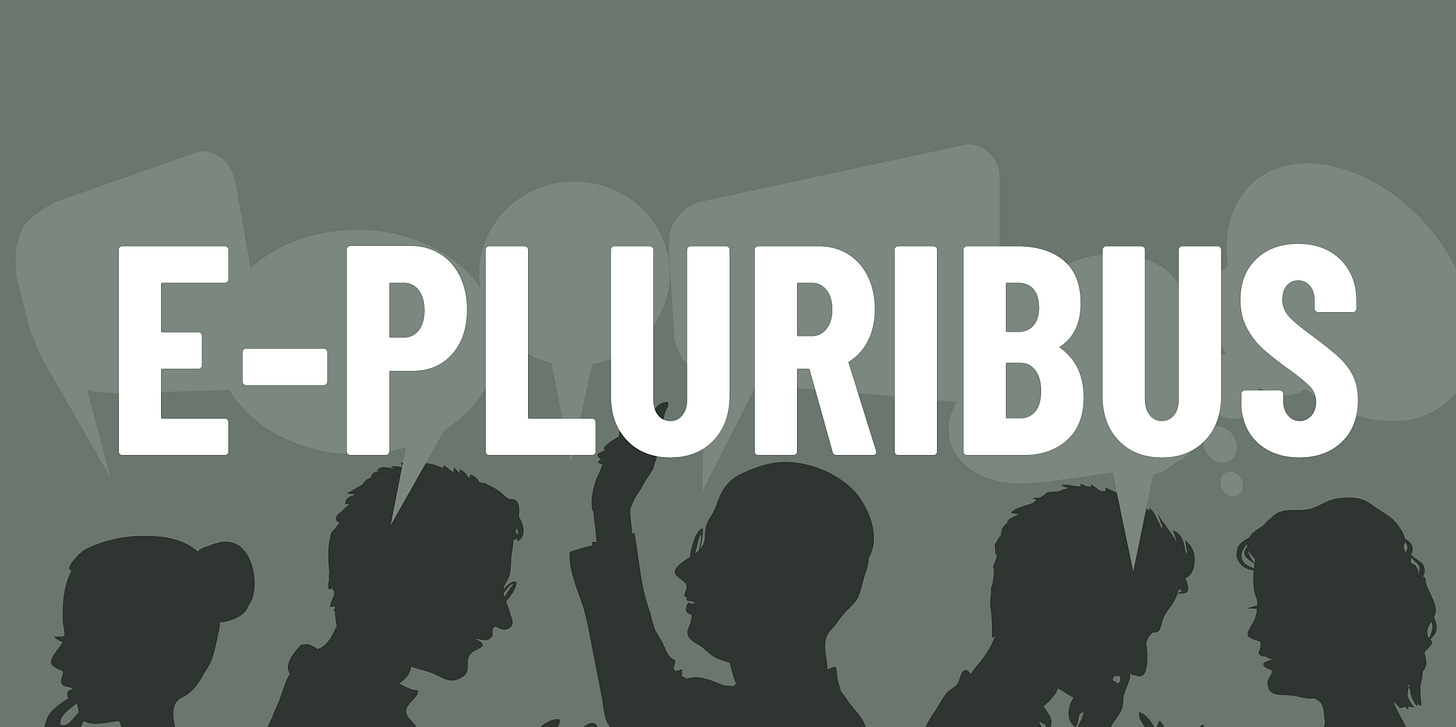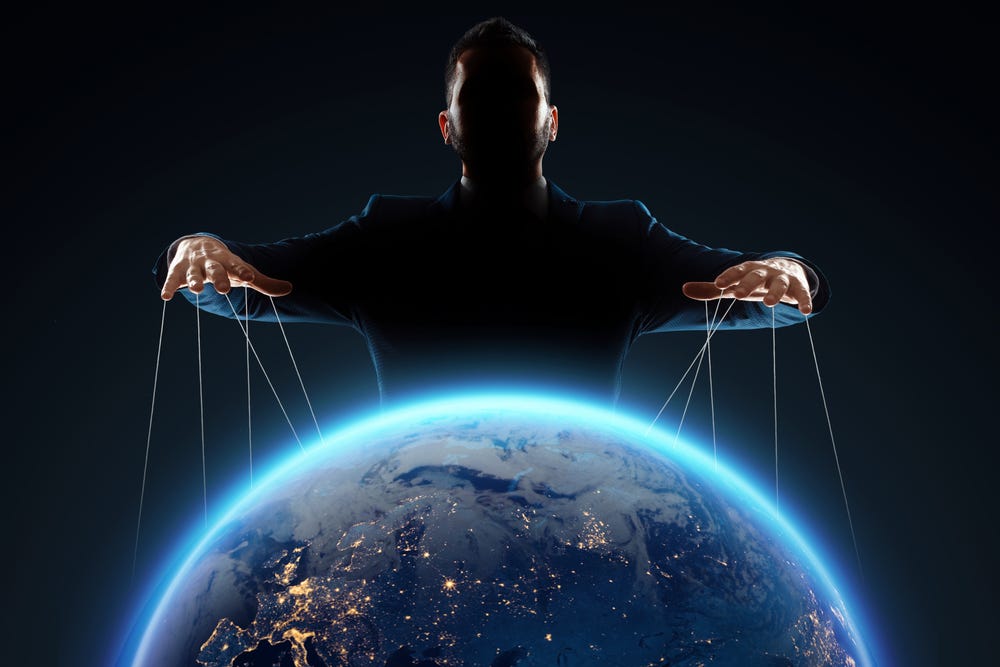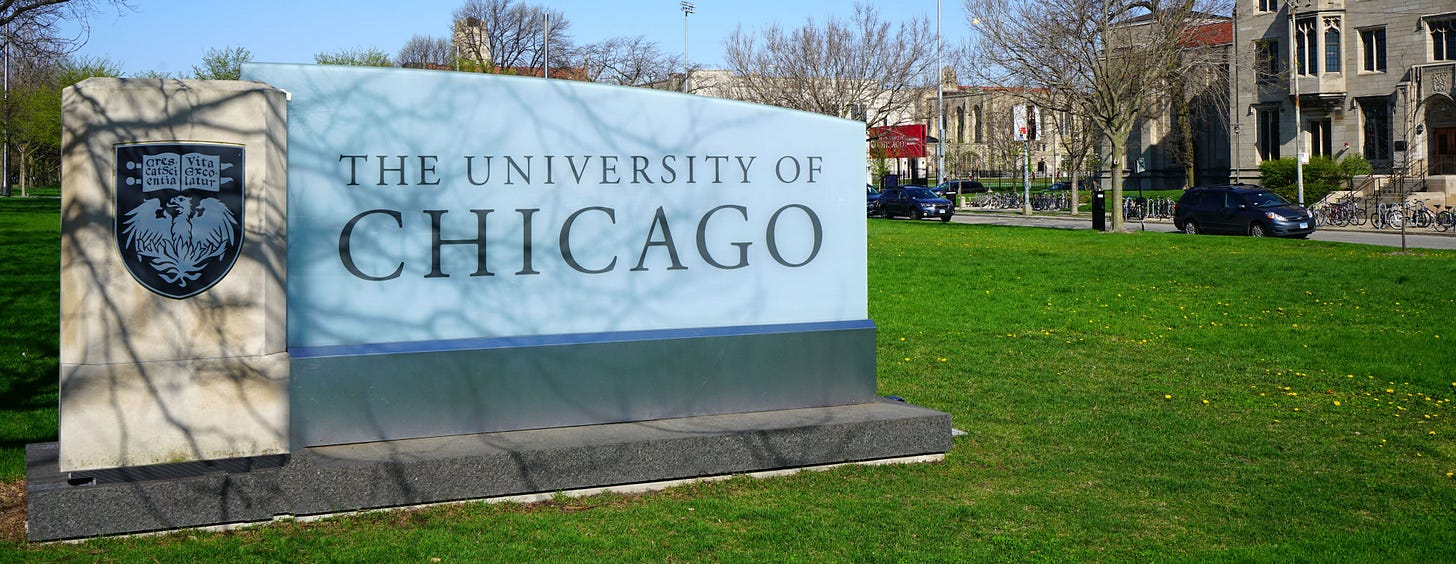E-Pluribus | November 21, 2022
How anti-Semitism and conspiracy theories are inextricably linked; the insidious nature of TikTok; and the alternative to censorship on campuses: professional restraint.
A round-up of the latest and best writing and musings on the rise of illiberalism in the public discourse:
Yair Rosenberg: Why Fighting Conspiracy Theories Is Essential to Fighting Anti-Semitism
The far-out nature of many conspiracy theories makes it tempting to simply joke about them or ridicule them back into the shadows. Writing in his Atlantic newsletter, however, Yair Rosenberg says the perennial nature of anti-Semitism and the all-too-real danger to Jews that it represents demand a more serious response that gets to its deep and ugly roots.
Most societies have trouble integrating and accepting subcommunities that do not conform to the general culture. As a result of this unfortunate human tendency, many minorities have experienced prejudice and discrimination. Jews are not special in this regard, but they are older, and so have been on the receiving end longer than most. Just look at the biblical book of Esther, where the villain Haman proposes Jewish genocide by arguing: “There is a certain people dispersed among the peoples … who keep themselves separate. Their customs are different from all other people, and they do not obey the king’s laws; it is not in the king’s best interest to tolerate them.”
Minorities also make easy scapegoats for a society’s problems. When something goes wrong, it is easier to blame outsiders than to look within. This lends itself to conspiratorial thinking, in which supposedly sinister splinter sects like Jews or Mormons or Muslims are cast as subversive threats to the social fabric. Once again, because Jews have been around for so many centuries, and because they have been a minority everywhere they have lived aside from Israel, they have been the unlucky beneficiaries of this ugly impulse. The result is that there is now an ancient yet self-perpetuating corpus that exists solely to pin society’s problems on its Jews, and it appeals to conspiracy theorists everywhere.
This explanation is a lot more complicated than simply blaming anti-Jewish bigotry on the left, the right, Christians, or Muslims. To be sure, anti-Semitism is expressed by different communities in terms that are familiar and persuasive to those communities, which is why it is valuable to distinguish among them, so that we can learn how to recognize the bigotry in all its guises. But understanding the ways that anti-Jewish prejudice grows in different soils should not distract us from its roots. The forces that fuel anti-Semitism are not inherent to any particular community; they are inherent to humanity.
Read it all.
Geoffrey Cain: How China Got Our Kids Hooked on ‘Digital Fentanyl’
With all the more overt ways Communist China seeks to spread its influence, a trendy video app might seem the least of our worries. Geoffrey Cain writes at Bari Weiss’s Common Sense however that we downplay the danger of TikTok at our peril.
In November 2021, Britain’s MI6 intelligence chief, Richard Moore, warned that China was laying “data traps” all over the world. “If you allow another country to gain access to really critical data about your society, over time that will erode your sovereignty—you no longer have control over that data,” he told the BBC.
The idea that apps violate personal privacy is something that many Americans now shrug off. The difference in this case is that the company that is doing the violating is an extension of the Chinese state.
Internal ByteDance guidelines leaked to The Guardian in September 2019 showed that TikTok moderators were instructed to “censor videos that mention Tiananmen Square, Tibetan independence, or the banned religious group Falun Gong.” Two months later, TikTok took the surprising step of suspending the account of a New Jersey teenager who posted a video about the Uyghur atrocities. (After that became public, TikTok backtracked.)
Elizabeth Kanter, TikTok’s director of government relations and public policy, acknowledged in a British parliamentary committee hearing in November 2020 that this censorship was not an anomaly.
American officials, for years, were mostly oblivious to the dangers posed by ByteDance and its efforts to circumvent U.S. oversight—stretching all the way back to the company’s acquisition, in 2017, of Musical.ly, another Chinese company that streamed music and was popular with American teenagers. The Musical.ly acquisition gave ByteDance tons of additional data and ultimately enabled it to launch what we now know as TikTok. But the Treasury Department’s Committee on Foreign Investment in the United States missed what was going on, because it generally does not investigate foreign companies’ investments in other foreign companies.
Read it all here.
Graham Hillard: At UChicago, Much Ado about ‘Whiteness’
Using a course on “whiteness” at the University of Chicago as an example, Graham Hillard at National Review addresses how universities can maintain academic freedom without giving in to ridiculous or dangerous ideas.
Discussing the matter in post-liberal quarters, one hears certain dark phrases repeated. Attacks on “whiteness” are “pre-genocidal.” They bring frighteningly to mind the treatment of Jews “in Weimar Germany.” To defeat these attacks is “more important” than abstract values such as free inquiry. Are such concerns overblown, even ridiculous? Absolutely. But they are nevertheless shared by no small percentage of conservatives, who still have, as of Tuesday night’s announcement from Mar-a-Lago, their champion.
The arguments in favor of untrammeled discourse are subtler but easier to sustain. To create “hate-speech” codes is to empower an army of bureaucrats whose rule will necessarily be arbitrary. To muzzle the professoriate is to freeze knowledge in place and live with the endless, unforeseeable consequences. Conservatives are right to bemoan the near-total progressive dominance of the academy, and courses lambasting “whiteness” really are abhorrent. But attempts to silence our opponents will surely fail. More than that: They will see us stripped of the speech protections that we presently enjoy. To paraphrase Robert Bolt’s Sir Thomas More, where would we hide then?
If the answer to the UChicago problem is not censorship from the right, what is it? Certainly not a tit-for-tat academic regime in which every course on “whiteness” is accompanied by an offering criticizing some other race. Such a “solution” would be both practically and morally untenable.
No, what is called for is widespread professional restraint on the part of university professors. Having announced her class, Journey should see it through, and UChicago should defend her at any cost. Then, quietly, she should pack the course away, never to list it again. Indeed, all racialist provocations should be voluntarily removed from the nation’s curricula.
Read the whole thing.
Around Twitter
Some insights from choreographer Rosie Kay on her experiences being targeted for “transphobia”:






Glenn Greenwald on the lack of self-awareness in some ivory tower pronouncements on free speech:



And finally, an example from the World Cup on what it looks like to stand up to authoritarianism on the world stage:









